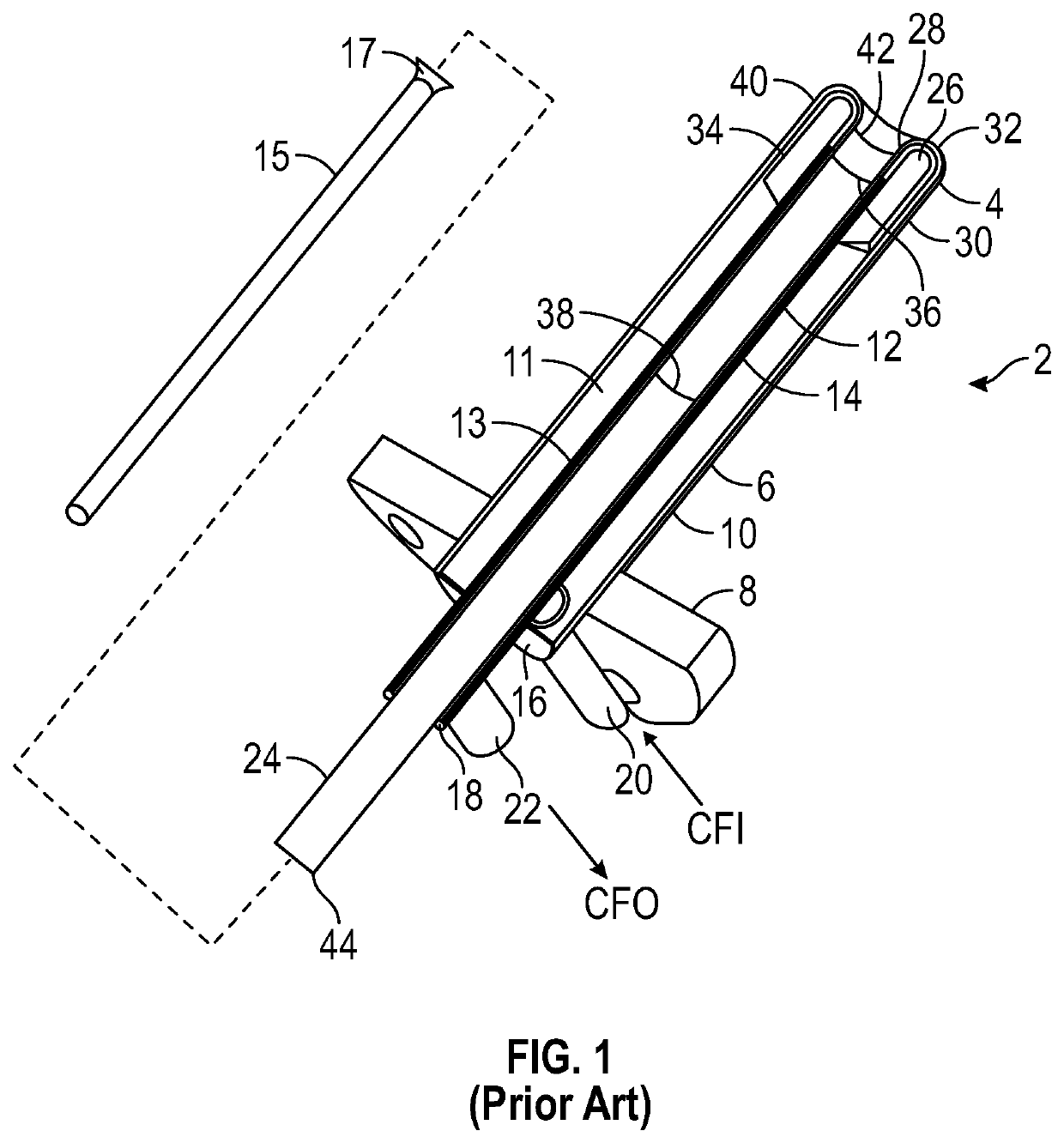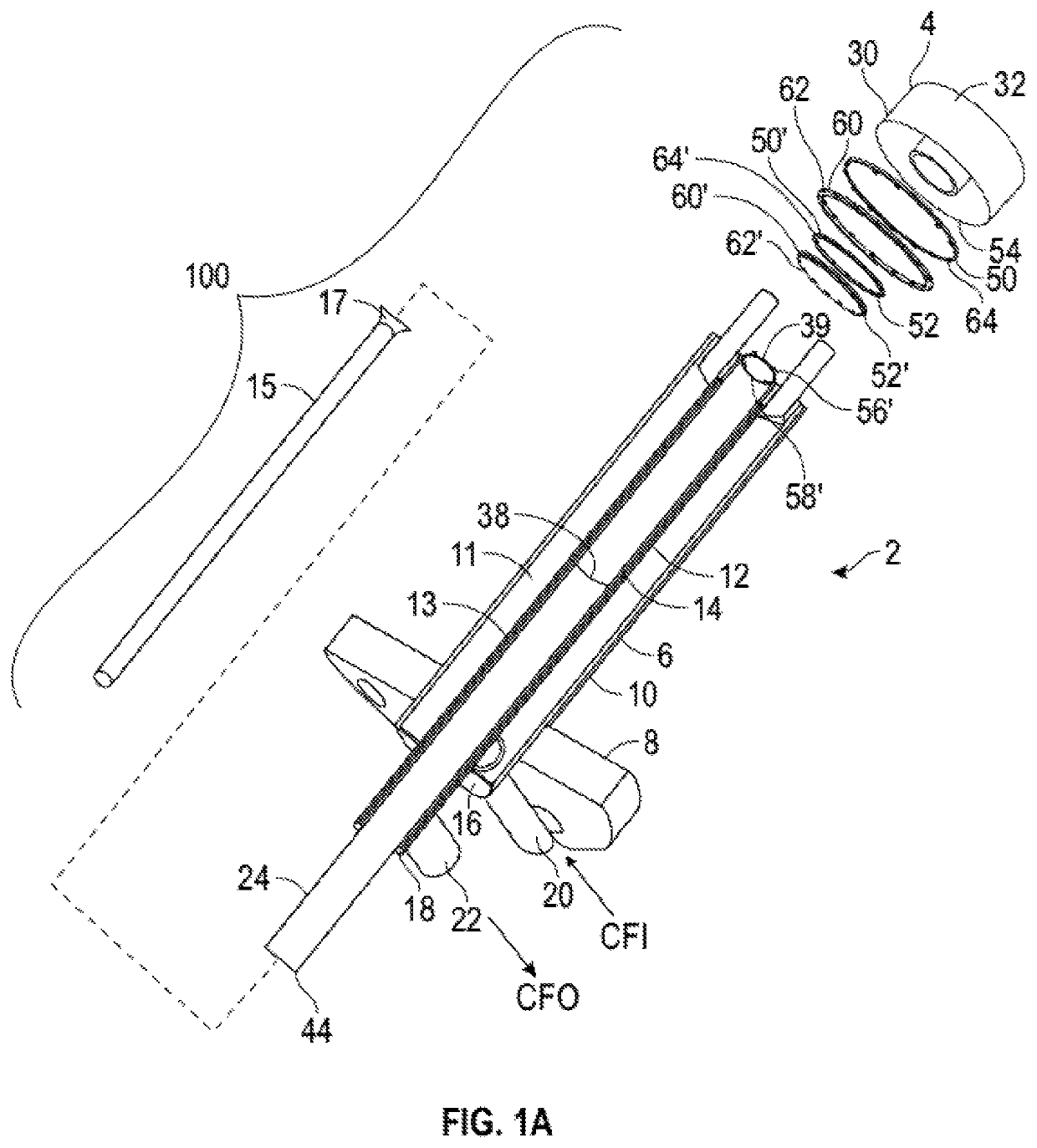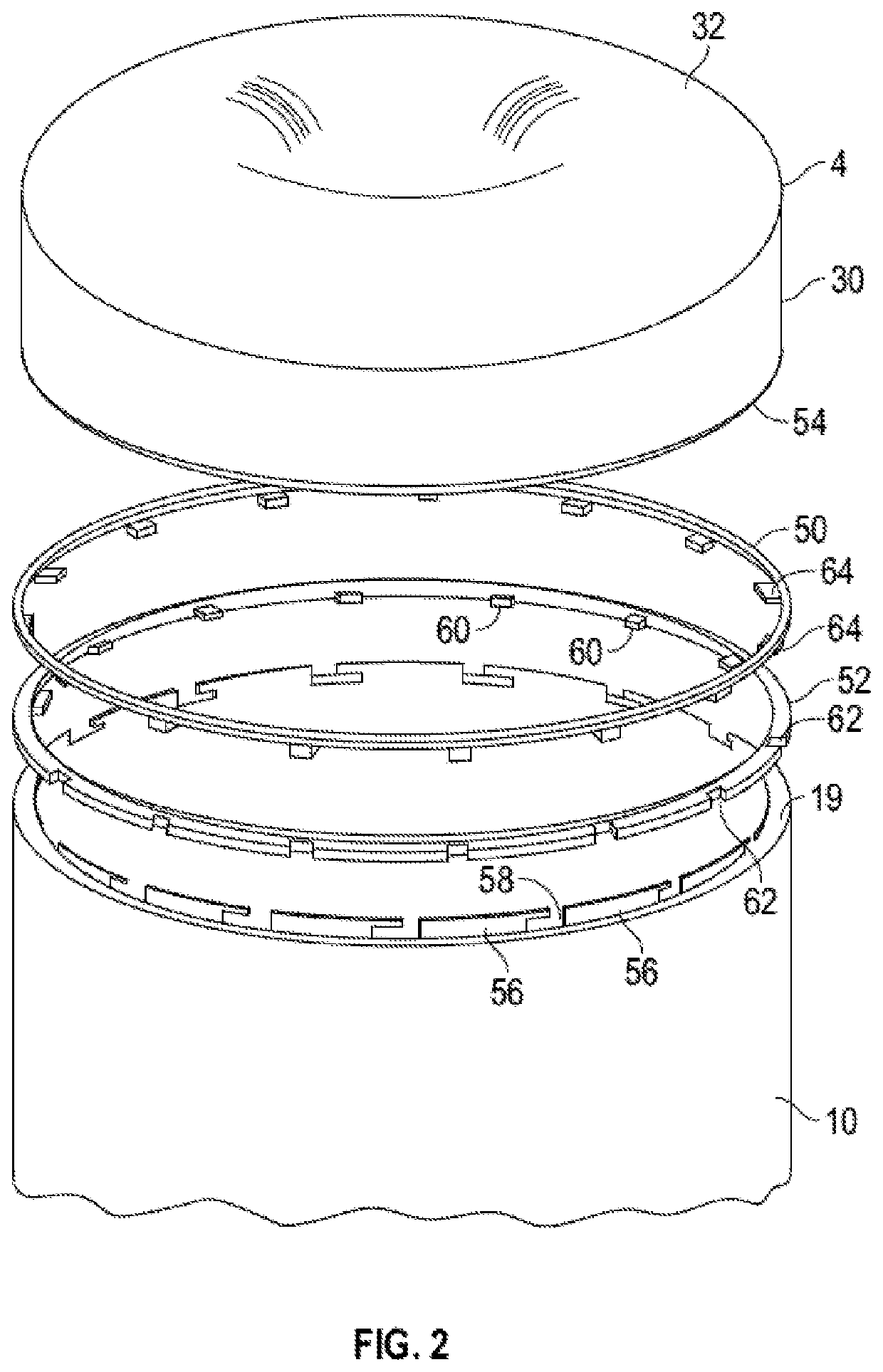Combustion burner
a burner and combustion technology, applied in the field of combustion burners, can solve the problems of high turbulence and foaming, rapid melting of glass batches, and inability to fabricate the entire burner using these materials, and achieve the effect of reducing or eliminating problems
- Summary
- Abstract
- Description
- Claims
- Application Information
AI Technical Summary
Benefits of technology
Problems solved by technology
Method used
Image
Examples
embodiment 100
[0065]Referring now again to the figures, FIG. 1A is an exploded perspective view of one non-limiting embodiment 100 in accordance with the present disclosure, illustrating a first ring 50 and a second ring 52 for forming an outer connection. While the term “ring” is used, it will be understood that this is simply used for simplicity, and that other shaped members may be employed. First ring 50 interference fits onto a shaped end 54 of outer wall 30 of burner tip 4, while second ring 52 interference fits onto a shaped first end 19 of external conduit 10. It will readily be understood that similar rings may be used for forming an inner connection between inner wall 28 of burner tip 4 and second internal conduit 14. These rings may be referred to herein as third and fourth rings 50′, 52′.
[0066]Referring again to FIG. 1A as well as FIG. 2, first ring 50 may include a plurality of mating projections 64 which mate with a corresponding plurality of circumferentially spaced, outward openin...
embodiment 300
[0081]Methods of making a fluid-cooled submerged combustion burner using interference fittings are considered another aspect of the present disclosure. As illustrated in FIG. 10, one method embodiment 300 may include the steps of:[0082](a) forming a first interference fitting of a first ring (50) to a shaped end (54) of an outer wall (30) of a burner tip (4) by:[0083](i) adjusting temperatures of the first ring (50) and burner tip (4) to cause relative diameters of the first ring (50) and shaped end (54) to change so that first ring (50) fits around shaped end (54), the first ring (50) having a smaller initial diameter than the shaped end (54) of the outer wall (30) of the burner tip (4),[0084](ii) placing the first ring (50) in position adjacent the shaped end (54) of the outer wall (30), and[0085](iii) adjusting temperatures of the first ring (50) and shaped end (54) to form the first interference fit (box 302);[0086](b) forming a second interference fitting of a second ring (52) ...
PUM
| Property | Measurement | Unit |
|---|---|---|
| melting temperatures | aaaaa | aaaaa |
| melting points | aaaaa | aaaaa |
| melting points | aaaaa | aaaaa |
Abstract
Description
Claims
Application Information
 Login to View More
Login to View More - R&D
- Intellectual Property
- Life Sciences
- Materials
- Tech Scout
- Unparalleled Data Quality
- Higher Quality Content
- 60% Fewer Hallucinations
Browse by: Latest US Patents, China's latest patents, Technical Efficacy Thesaurus, Application Domain, Technology Topic, Popular Technical Reports.
© 2025 PatSnap. All rights reserved.Legal|Privacy policy|Modern Slavery Act Transparency Statement|Sitemap|About US| Contact US: help@patsnap.com



